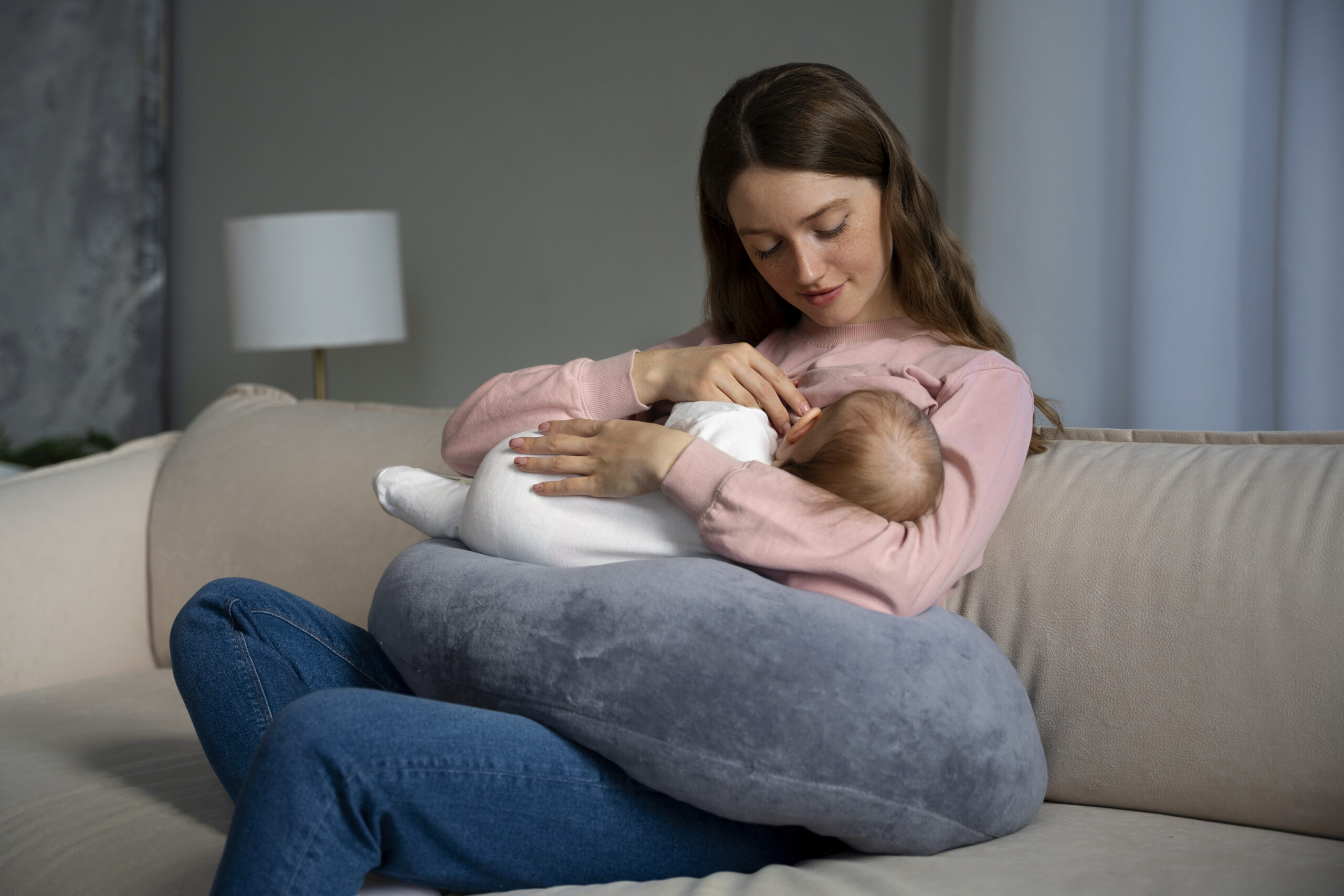Back pain after pregnancy is very common, particularly in the lower back region. According to research, up to 20% of women feel low back pain for three to six months after giving birth. Back discomfort following a c-section may also occur: Because it normally takes longer to recover from a c-section than from a vaginal birth, the fact that you are moving about less may cause your paraspinal muscles to weaken. It is normal if you feel that this pain makes caring for and carrying your newborn around difficult.
During pregnancy, the body undergoes many changes such as hormone changes, weight gain, and uterine expansion. Increased pressure and tension on your back result from an enlarged uterus since it changes your posture and weakens your abdominal muscles. Pregnancy causes normal weight gain, but the extra weight strains your joints and muscles. Hormonal changes typically have an impact on ligaments and joints too. Because labor takes a toll on the body, women who experience long and painful labors may be much more affected.
The postpartum phase is also influenced by other factors as well. When Breast feeding, many new mothers unintentionally aggravate their back issues by adopting poor posture. When you’re first learning how to breastfeed, you can hunch over and strain your neck and upper back muscles as you look down since you’re so concentrated on getting your baby to latch on correctly.
Recovering from all postpartum aches and pains, including back pain, might be more difficult due to the general exhaustion and stress of caring for a new-born continuously.
How long does back pain after pregnancy pain last?
After giving birth, postpartum back discomfort often goes away in a few months; however some women may experience pain for longer. You are more likely to experience chronic back pain after giving birth if you experienced back pain prior to or throughout your pregnancy, particularly if it was severe or started relatively early in the pregnancy. Another factor that raises the likelihood of chronic back pain is being overweight.
Women with lumbo-pelvic discomfort were three times as likely to experience postpartum depression symptoms as women without it. Back discomfort was more common in pregnant women with a history of the condition, particularly in younger multi-gravid individuals. Ignorance of the low back pain throughout pregnancy and the postpartum period may result in a weak spine later in life. Although a woman’s body may take several months to fully heal from the hormonal and biological changes that occur during pregnancy and childbirth, ignoring low back pain throughout pregnancy and the postpartum period may result in a weak spine in later life.
How to get relief from postpartum back pain?
Informing your doctor about your back pain is the first step. They can assess your condition to see if you require more treatment and provide suitable self-care techniques for you to try at home first.
Maintenance of good posture
It is a simple and efficient method of avoiding excruciating back pain during postpartum. Sitting in chair with bad posture, lying down, and exerting too much physical force on your body without getting enough rest strain your spine more than anything else.
Make sure the chairs you use at work and at home offer adequate support; ideally, they should have firm cushions, a straight back, and arms. Make use of a footrest that raises your feet just a little bit so that your pelvis tilts forward and your muscles are relaxed.
Completely avoid heavy weight lifting
It causes additional strain on the spine. Everyday physical activity that involves some sun exposure should be incorporated. This maintains the strength of your spine and could help with back pain during pregnancy. Try doing mild exercises like yoga or walking.
Have happy thoughts
A healthy back is a result of a mind that is calm. Another option is to practice postpartum yoga, which will help your back and mind relax. Remember that while doing yoga offers many health benefits, you shouldn’t over exert your body
Ayurvedic Management for Low Back Pain In postpartum
In Ayurveda, Soothika Paricharya, which means postnatal care is an important part, which is well explained by Acharyas in texts. According to Ayurveda, there are three doshas, or life force energies, that come from the five elements: pitta, kapha, and vata. Earth and water are associated with vata, space and air with pitta. Every individual has a genetic disposition towards one dosha, which influences their temperament, body type, and overall health.
When you give birth, your body experiences an imbalance that frequently results in postpartum anxiety. This imbalance is caused by your abdomen becoming empty, losing blood and fluids, and having less energy. This is a how-to for counterbalancing vata, recovering from childbirth, and putting oneself on a healthy, balanced path going forward.
During the first several months of motherhood, your dinacharya (daily routine) will alter significantly as you adjust to your newborn’s constantly changing requirements and your new position as a parent.
Take a few moments during the day to relieve stress and reset between balancing your new role as mother with everything else. This can be as simple as closing your eyes and taking a few deep breaths, getting up and stretching, chanting loudly, spraying rose water on your face or lying down for a quick catnap. You’ll feel more centered, peaceful, and energized after doing this, which will also help you regain your feeling of order.
Post Natal Care
It is also an important part in Ayurveda which also helps to prevent Vata Kopa after the delivery, through which we can prevent and cure pregnancy-related back pain and other problems up to an extent.
Motherhood is always a special moment in one’s life which is the important time period where care for the baby and mother is needed the most.
Post natal panchakarma
In addition to strengthening your body, oil massages or abhyanga for mother and baby also add heat and flexibility to your tissues and muscles, balance out the vata dosha, ground the new mother, and help her be fully present in her new role. Procedures like udvarthana, kizhi, katibasti, dhara will help to relax muscles and ligaments of abdomen and pelvis. These treatments help to lose weight gained during pregnancy. Mathruthvam Ayurveda Centre is following Authentic Ayurvedic treatment where we follow the real essence of holistic science for Cure of disease.





